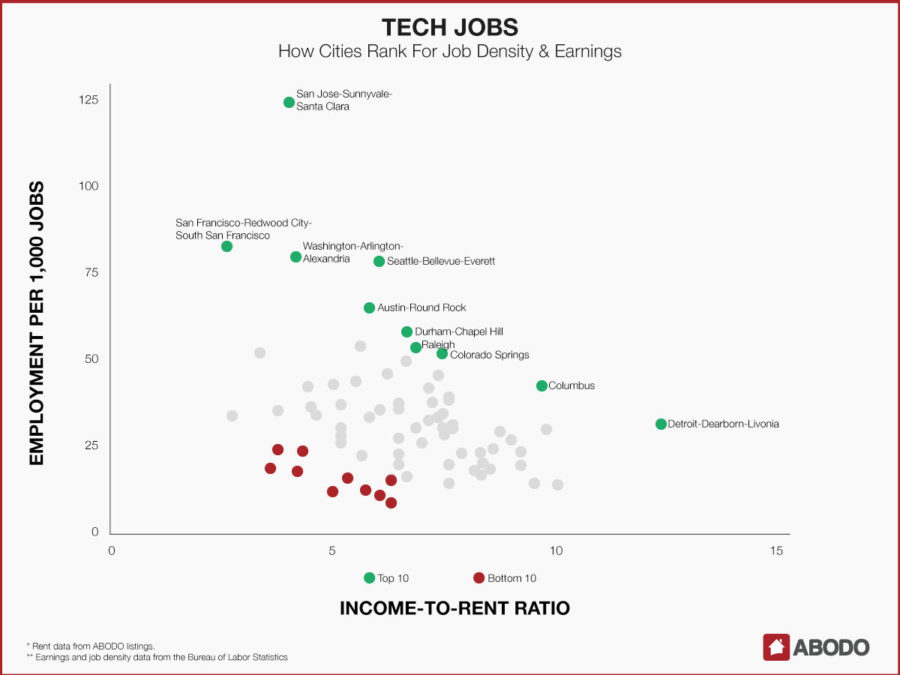Lexington ranked 44th for tech jobs in new study
January 26, 2017
ABODO, an apartment listing site based in Madison, Wis., recently published a study analyzing 76 metropolitan areas, which appeal to people seeking math and computer jobs. The Lexington-Fayette County area came in at 44th on the list.
The ranking was based on two criteria: number of math and computer jobs per 1,000 jobs in the area, and ratio of median wage to median cost for a one-bedroom apartment.
According to the online report, Lexington has 23 computer and math jobs per 1,000, and a ratio of 7.9 for wage to apartment cost. For comparison, the San Jose-Sunnyvale-Santa Clara, Calif. area, which ranked first on the list, has 124.9 jobs per 1,000, and a ratio of 4.0.
ABODO Senior Communications Manager Sam Radbil said that some of the results were surprising. For example, Detroit scored much higher than expected, while cities like Nashville and Los Angeles were “on the lower end of the spectrum.”
Radbil said he did not find it surprising that Lexington claimed a solid spot on the list.
“We find that cities in close proximity to very successful and in-demand universities tend to produce more people looking for tech jobs,” Radbil said.
With a median one-bedroom rent price of $689 contributing to its ranking, Lexington showed “that being in an affordable place to live is very important,” Radbil said.
At 44th on the list, Lexington outranked many cities that Radbil said were expected to be above it, such as as San Diego and Pittsburgh.
UK computer science and mathematics junior Ryan Shah said he thinks Lexington has a lot of potential for computer science jobs, but he did not know about some of the other computer science opportunities in the city.
“Hearing that we scored so highly is definitely a positive when considering where I want to end up working,” Shah said.
This study was the first piece of a planned series of reports about jobs and housing, Radbil said. Future reports will analyze jobs in different fields. ABODO started with computer and math jobs because together they are “one of the most popular and fastest growing industries,” Radbil said.
































































































































































